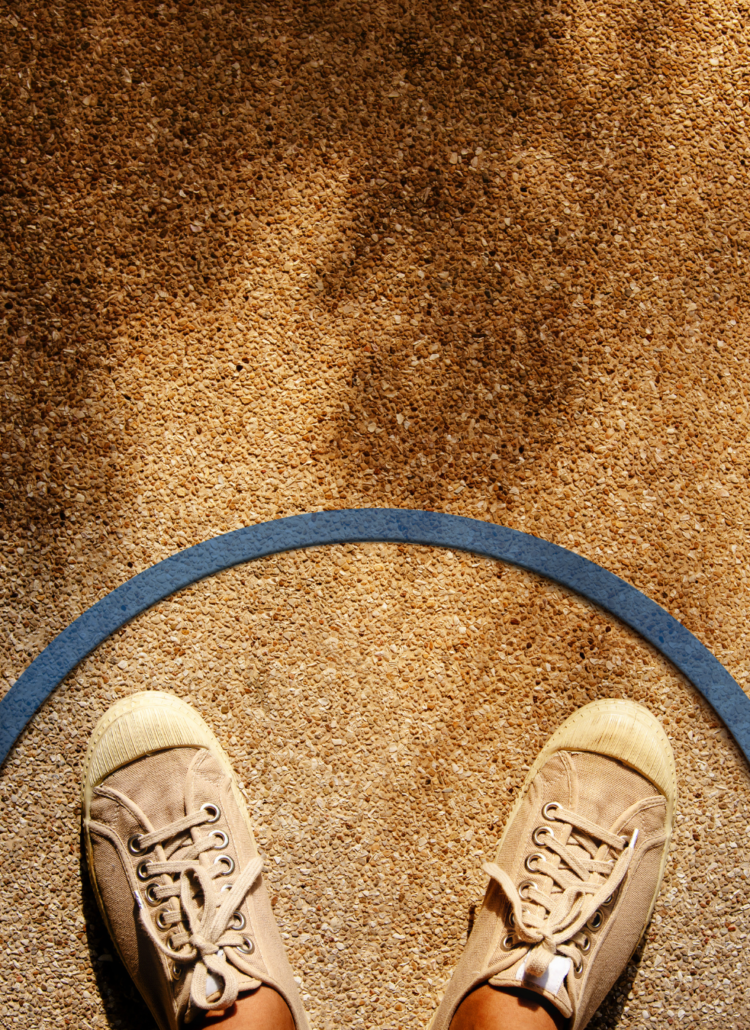Feel like you will never be good enough? Think you’re just pretending and making it all up? Convinced you’ll be exposed at any moment for the fraud that you are? Congratulations, you’ve past the imposter syndrome test.
Welcome to the high achiever club struggling with imposter syndrome. There are more of us here than you could imagine. Now, let’s dive into what imposter syndrome is, how to spot it, and my simple 3 step process to dissolve it.

What is imposter syndrome?
Imposter syndrome is a psychological phenomenon where you start questioning yourself, your gifts, and achievements while feeling overcome by self-doubt and insecurity.
Even if you’re competent, successful, smart, or good at what you do, you end up working way harder than you need to, setting crazy high standards for yourself. By the time you do everything that is needed to feel qualified, you’ve already moved onto the next achievement “required” to define your success.
As a result, you’ve woven a web of burnout and overwhelm. This becomes a kind of drug for you, powering every hour of your day. Later on, it manifests as a workaholic mentality, where the constant busyness and stress become addictive, shaping your daily routine.
What causes imposter syndrome?
Why do individuals experiencing imposter syndrome feel like frauds, despite abundant evidence of their success?
Here’s my concise answer: Instead of acknowledging their inherent talents and capabilities, they often attribute their accomplishments to external factors like luck, good timing, exceptionally hard work, or coincidences.
Accordingly, the root cause of this behavior stems from growing up in competitive environments, with the pressure to over-perform and meet unrealistic personal expectations.
As a reiki master who has had the privilege of helping hundreds of clients heal, many people who develop feelings of imposter syndrome have been faced with intense pressure to obtain academic, social, or sports achievement in childhood.
This ultimately takes the form of perfectionism and constant self-doubt.
How common is imposter syndrome?
Psychology Today notes, “Around 25 to 30 percent of high achievers may suffer from imposter syndrome. And around 70 percent of adults may experience imposter syndrome at least once in their lifetime.”
What triggers imposter syndrome?
I’ve observed two triggers in myself and my clients that often spark imposter syndrome.
The first trigger occurs when we’re about to take on a new experience outside our comfort zone. This could involve attempting a new skill, stepping into a leadership role, taking on a new project or client, or, in my personal experience, presenting in front of a large audience. The unfamiliarity and the possibility of feeling inadequate in these situations can evoke imposter feelings.
The second occurs when someone draws attention to our success—whether it’s receiving an award, passing an exam, or getting promoted. Moreover, experiencing failure after a series of successes can prompt us to scrutinize and doubt our overall competence.
What role does perfectionism play?
Perfectionism often feeds imposter syndrome, where people experience the constant pressure to perform at their absolute best – all of the time. Anything that falls short of perfect, leads to feeling incompetent and anxious.
Changing one’s perspective on perfection is crucial in combating imposter syndrome. Personally, I’ve tackled this by reminding myself that nothing and no one is perfect.
As humans, we are inherently imperfect, here to make mistakes, learn and grow. I’ve started viewing imperfections and mistakes as indicators of progress. What if success required embracing failure, making more mistakes, and showcasing your authentic, imperfect self to the world?
It turns out, that was my path to success. True success involves failing many times, owning your mistakes so you can help others going through the same experiences, by being authentically you.
Whoever and whatever you lose in the process of being you, was never yours to begin with.
Overcoming imposter syndrome
Overcoming imposter syndrome involves remembering who you are. This is a thorough piece I lead my students through in my Reiki courses.
Firstly, imposters feel like they don’t belong, so remembering their gifts, purposes, and talents is key. In addition, it requires the knowledge that no one and nothing can add to your worth. Not a degree, not a job, not a partner, not a house or a car. I am going to say it again, “No one and nothing can add to your worth.”
Instead, you are worth. It is your being. It is woven into your energetic field and your essence. The reason you feel so unworthy is because you are not allowing yourself to experience the worth that you are.
Secondly, quit comparing yourself to others. You are not here to be someone else. You are here to be you.
I like to imagine this as a Van Gough painting. You are the red brush stroke on this painting. At the same time, you see the yellow brush stroke shining brightly from across the canvas, attracting attention from art gallery visitors.
You want the attention too, so you start following the yellow brush stroke’s strategies to success. In the process you turn into a dull brown color, feeling completely burnt out and disconnected from yourself.
Why? Because you followed someone else’s path and not your own. This was the story of my life, which you can read all about here.
Why is it important to heal?
As illustrated in the example above, your purpose is to express yourself uniquely, without imitating others. What does this mean? You’re meant to act, speak, and behave in a way that feels authentic to you.
Long gone are the days when following a script, strategy, or blueprint guarantees success; those are all dead-end paths. Trust me, I’ve navigated through many of them.
The path to your dreams lies in staying true to yourself, prioritizing activities that bring you joy and into a timeless space. This space flawlessly requires pouring in 100% of your pure authenticity. That is success, my friend.
As you heal from the need to emulate others, you realize that no one can teach you how to be yourself better than you. This releases the pressure to conform to something you are not.
Healing imposter syndrome is essential for fostering continued personal and professional growth, allowing you to thrive.
Is it possible to receive a diagnosis?
The Diagnostic and Statistical Manual of Mental Disorders does not officially recognize imposter syndrome as a psychiatric diagnosis. While people struggling with imposter syndrome may also battle with other mental health conditions, like anxiety or depression, the specific label of “imposter syndrome” is not used for diagnosis in a clinical setting.
How to heal imposter syndrome
Think about times in your life when you were expected to be really good at something. This might have made you forget about your true talents and follow someone else’s idea of success.
And let’s be real, it wasn’t the best thing for you. It made you rely more on others than on your own inner guidance system, abandoning yourself in the process.
So, try to forgive those who expected this from you. They did their best with what they knew at the time. I’ll share a simple forgiveness meditation to remove this person(s) from your energetic field.
After you do this, it’s like pulling out the root of your self-doubt. It doesn’t mean you won’t feel unsure about yourself again, but when those feelings come back, it’s like an old program popping up. You’ll know it’s time to take care of it.

3 Steps to nourish imposter syndrome
When self-doubt shows up like a wave in the ocean, you might feel your body getting tense. This tension is your body’s way of protecting you from failure, which it sees as a threat to survival. The main job of your body is to survive.
Accordingly, here are three simple steps to ease this tension and resistance:
- Identify where you feel it in your body.
- Picture pulling the heaviness out of your body, and hold it in your hands, like a little malnourished baby who just needs someone to hold them and feed them.
- Imagine holding this baby, and start feeding them with a bottle while saying, “you are safe, you are loved, you are nourished.”
You’ll start to notice the resistance leaving your body. Wild, isn’t it?!
I came up with this technique in 2023 and called it the “hungry baby” technique. We’ll dive deeper into this process of dealing with resistance in my upcoming free course, Rise of the Healer, launching this Fall. Feel free to sign up here.
Who should people with imposter syndrome turn to for support?
According to Psychology Today, “research suggests that reaching out to people outside of one’s academic or professional circle may be a better tool to combat imposterism. Those individuals can put the person’s concerns into context, recalibrate their perspective, and offer support and love.”
On a personal note, I decided to sign up for a Reiki 1 course to learn how to self-heal from an expert. It turned out to be the best decision of my life!
Now, I don’t see self-doubt, anxiety, and tension as enemies. Instead, they serve as my check engine light, signaling me to nourish and love myself more.
Written By: Allie Pratt




